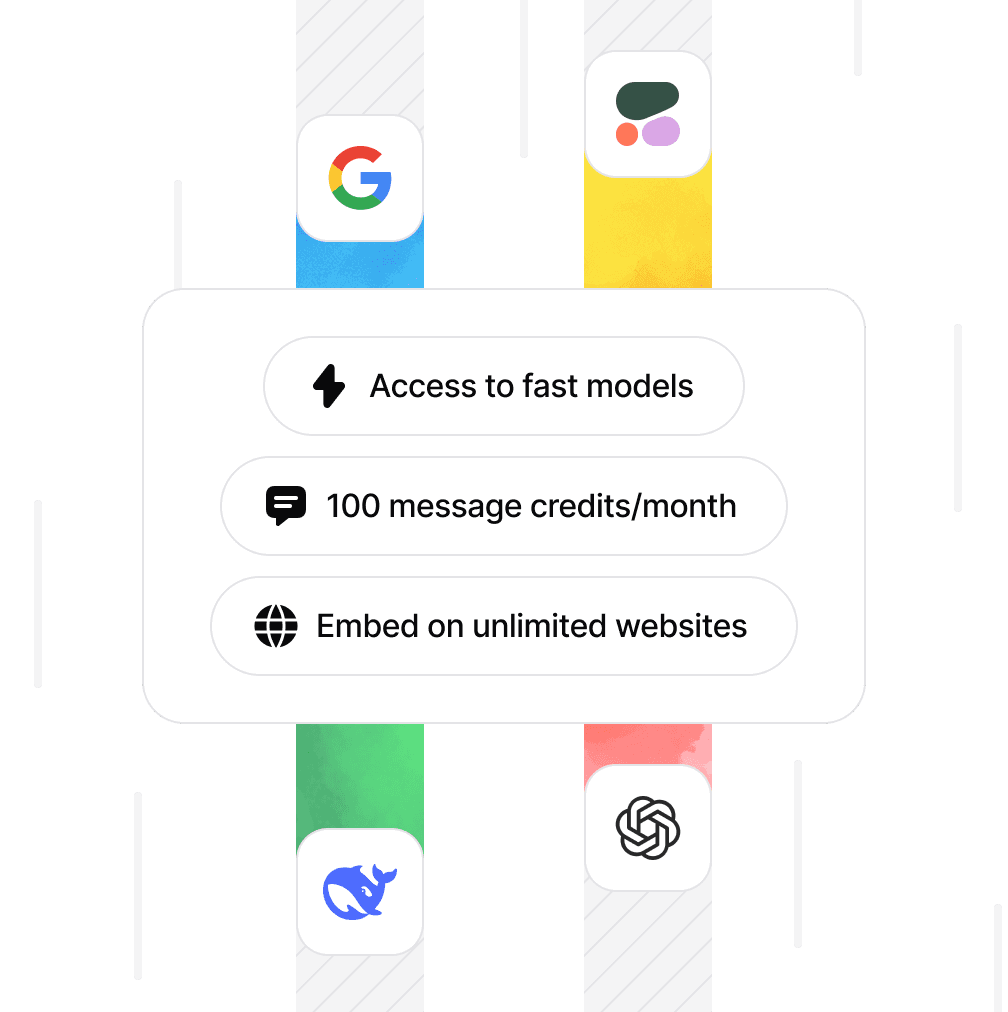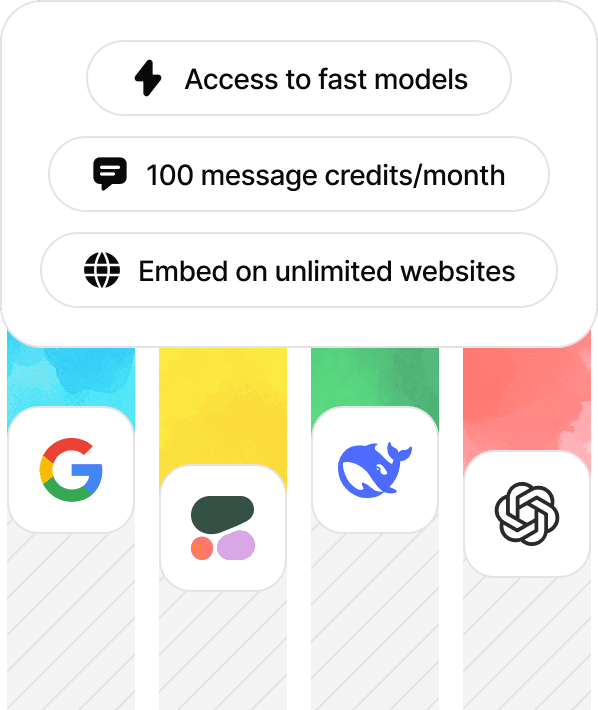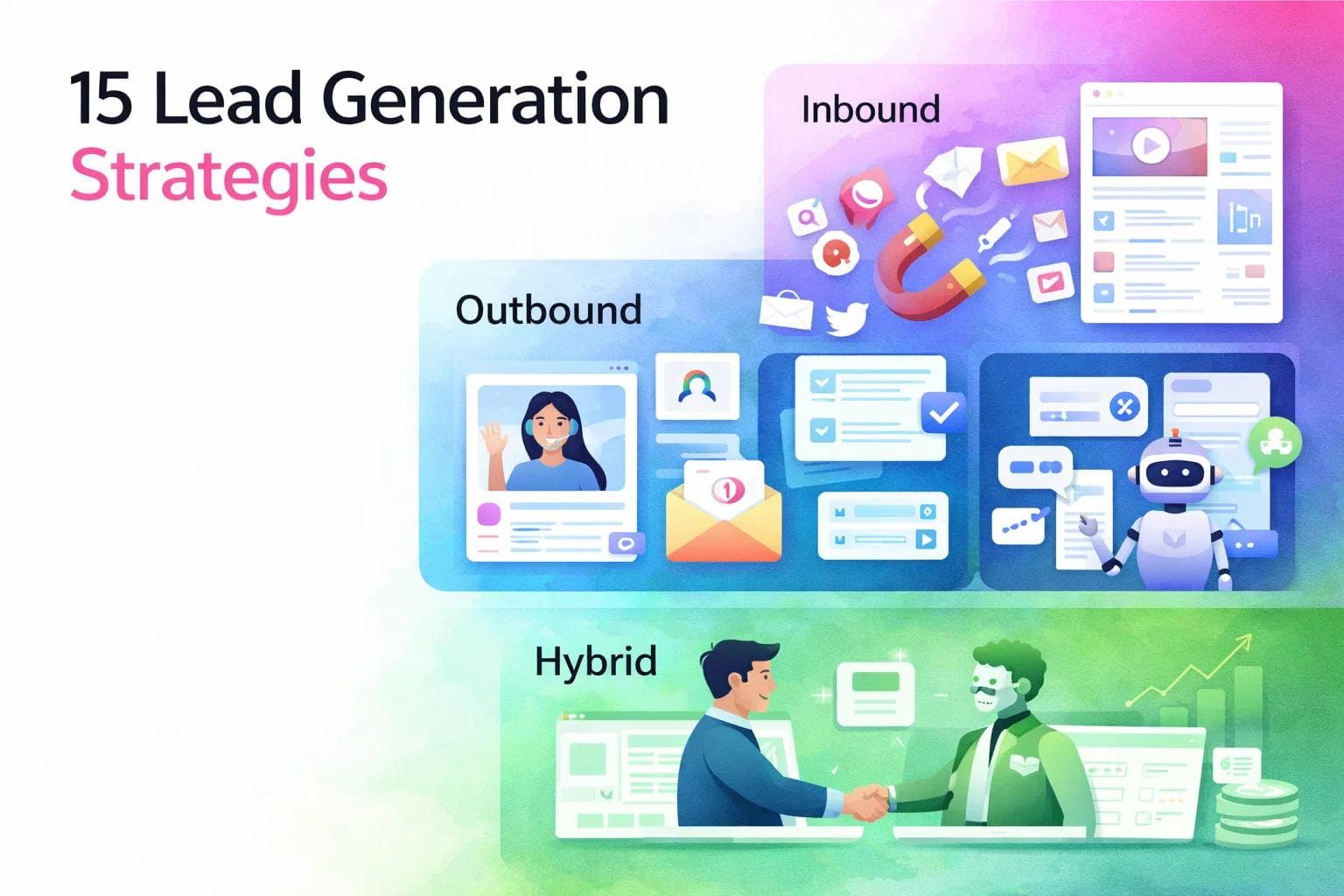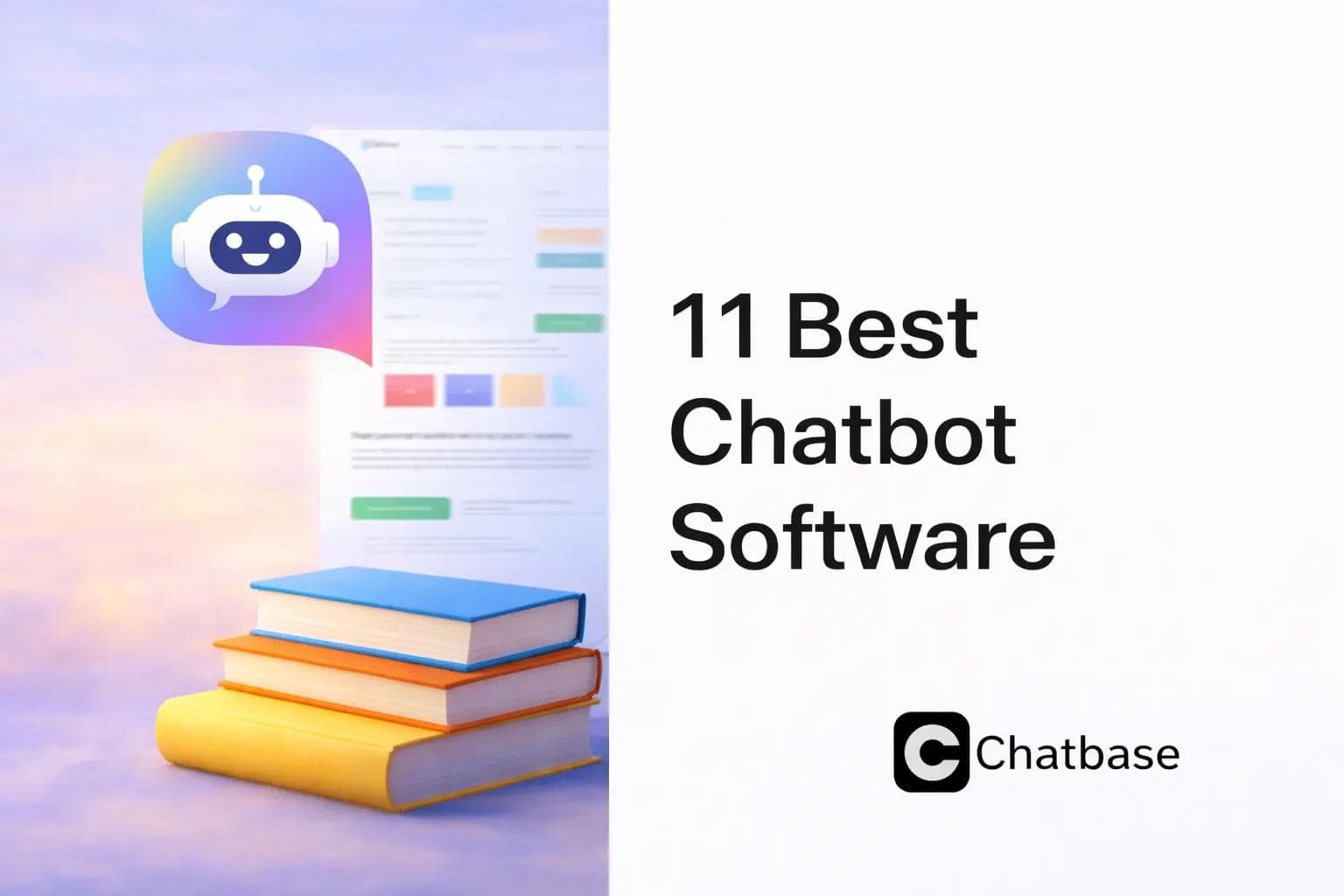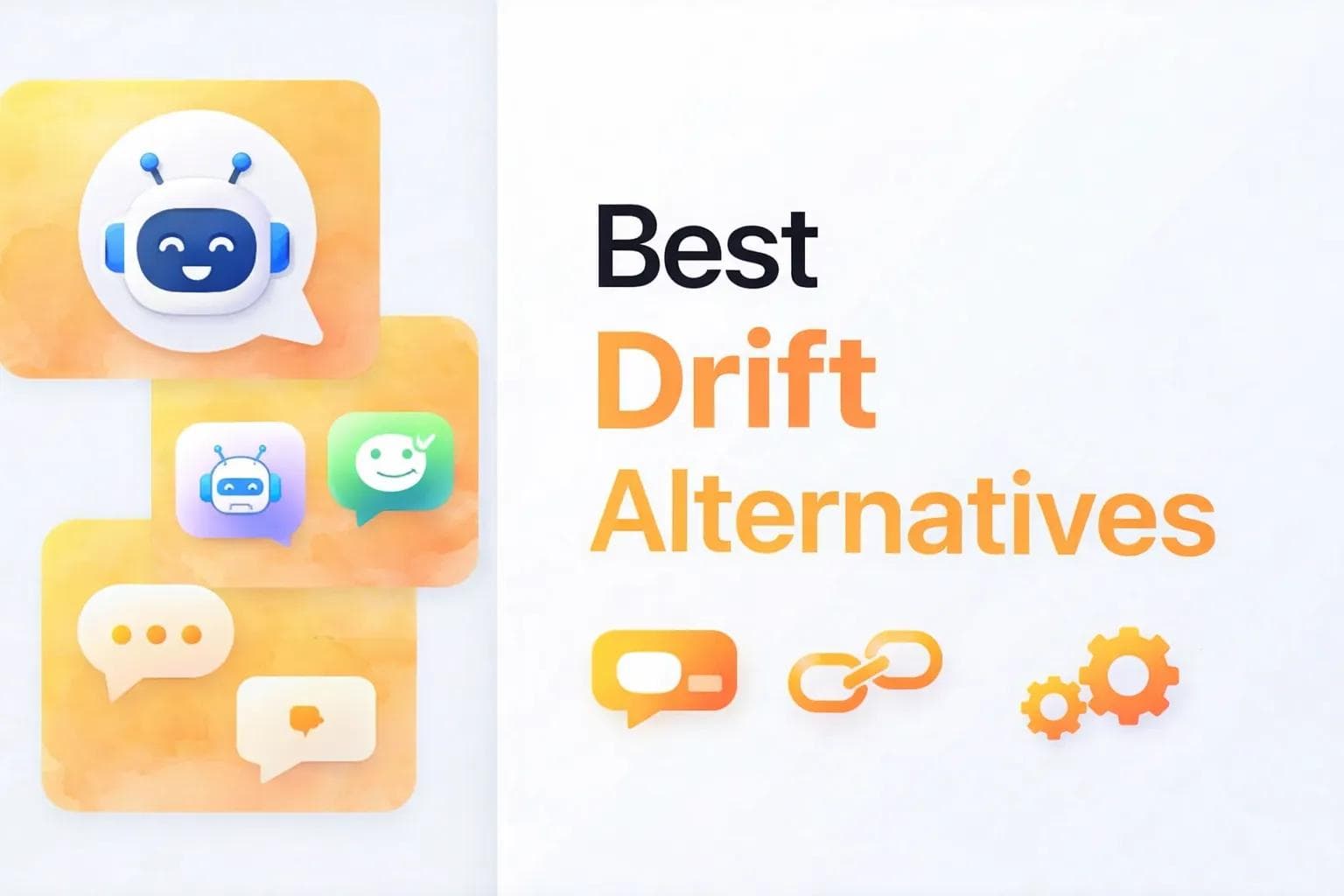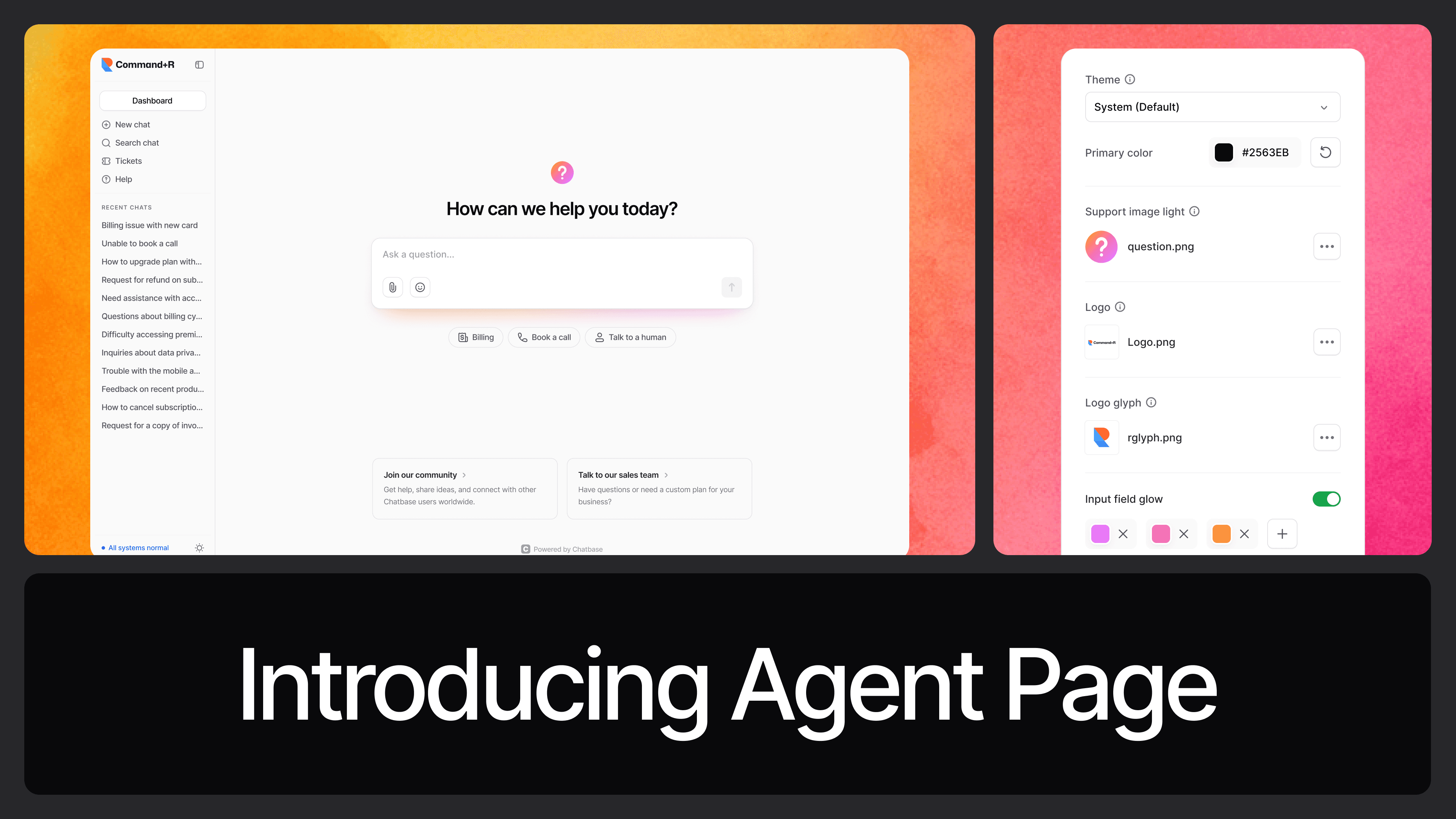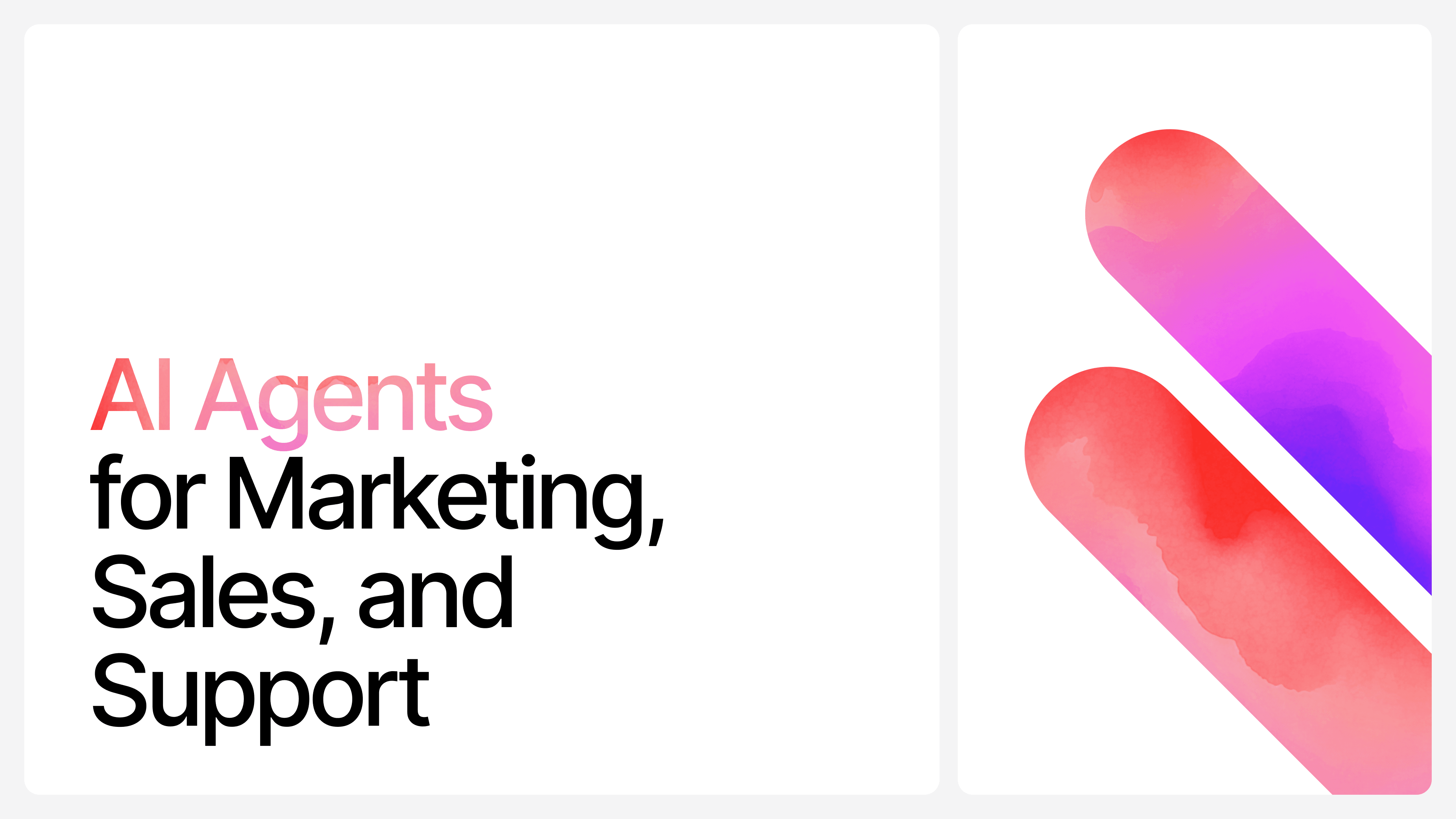10 Best SaaS Support Tools in 2026
Max T
Jul 3, 2025
8 min read
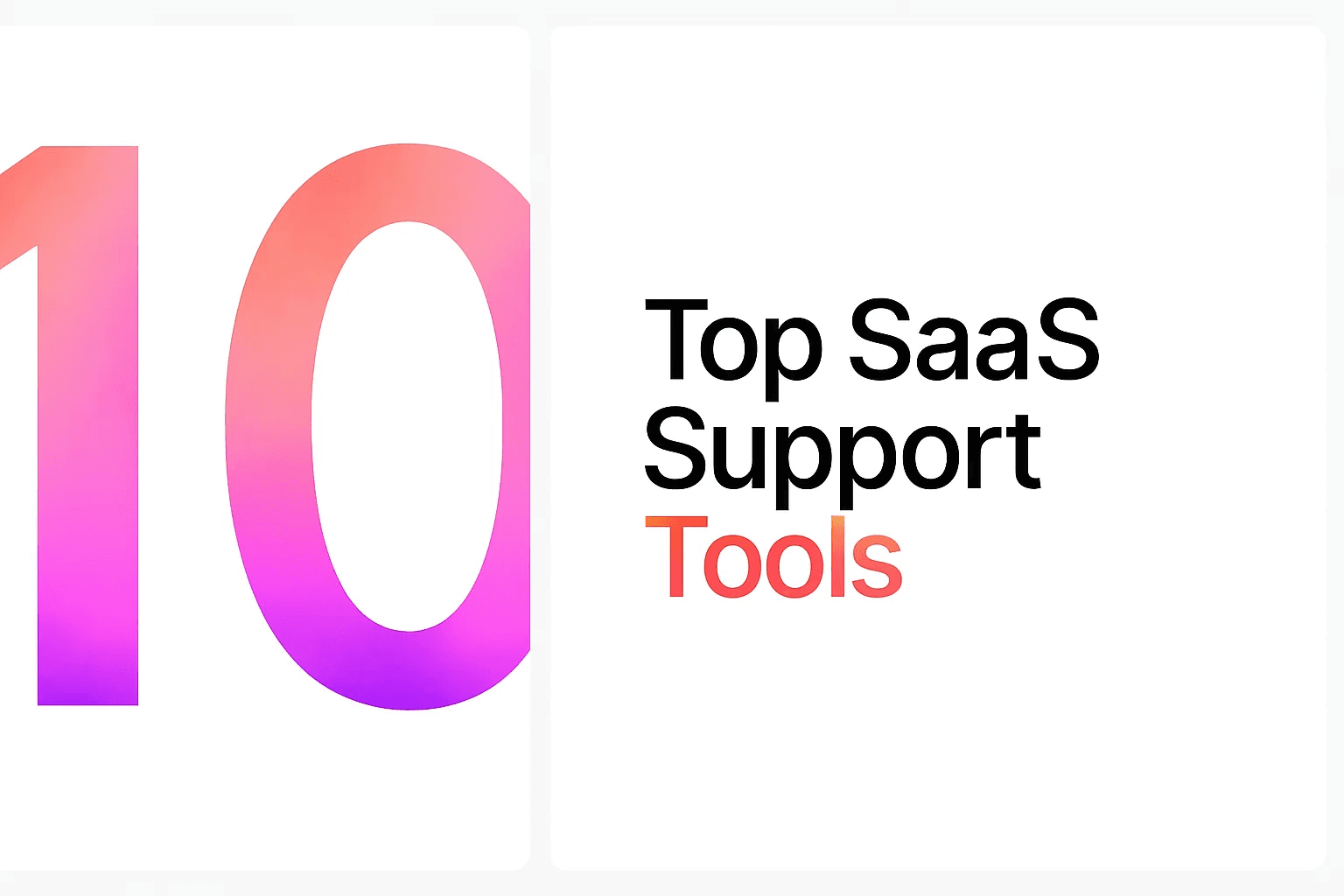
If you’re running a SaaS business, customer support isn’t just a side function—it’s baked into the entire product experience.
Unlike traditional businesses where support mostly kicks in after purchase, SaaS support spans the full customer lifecycle: from onboarding to troubleshooting, from feature questions to renewal nudges. Every interaction can shape whether a user sticks around—or churns.
And because your product lives online and runs 24/7, your support setup has to match that energy. It needs to be fast, scalable, and deeply integrated with how your product works.
That’s why SaaS support isn't just about replying to tickets. It’s about setting up smart systems that can prevent tickets, resolve issues faster, and scale with your business.
But doing all that manually is impossible. Which is why we need SaaS support tools.
What Are SaaS Support Tools?
SaaS support tools are platforms or software designed to help you manage customer interactions, answer questions, resolve issues, and even automate parts of your support process.
But it goes deeper than that.
These tools aren’t just about replying to messages—they’re about delivering proactive, personalized, and scalable support. Some help you set up AI agents that handle basic queries. Others make it easier for your team to collaborate on tickets, centralize user feedback, or even collect bug reports from within your app.
And the best part? The right tool won’t just make your support team’s life easier—it’ll make your product feel smarter and more human to your customers.
Now, let’s get into the tools.
10 Best SaaS Support Tools
From smart AI agents to full-blown helpdesks, these tools will help you deliver faster, smarter, and more scalable support for your SaaS product.
1. Chatbase
Most tools will help you respond faster. Chatbase helps you respond smarter.
It’s not just a chatbot—it’s an AI agent. That means it doesn’t just answer questions; it can take real actions based on what users need.
You can train Chatbase with your entire support documentation, FAQs, product pages, help center content—you name it. Once trained, it becomes a fully deployable AI agent that understands your product, your customers, and your business context.
Need it to handle complex queries? Done. Want it to guide users step-by-step through onboarding? Easy. Prefer it to act as a knowledge base, self-service portal, and live chat fallback in one? It does that too.
But the real magic? It doesn’t just stop at giving answers. Chatbase agents can take actions, like checking order status, resetting accounts, booking meetings, or escalating to human support when needed.
For SaaS teams looking to scale support without scaling costs, Chatbase is easily one of the smartest first picks.
2. Zendesk
Zendesk is a veteran in the support game—and for good reason.
It gives SaaS teams a centralized platform to manage email, live chat, social messages, and help center requests all in one place. The real strength of Zendesk is in its ticketing system. You can automate workflows, assign tickets to specific agents or teams, and keep detailed histories of customer interactions.
It’s especially useful if you’ve got a growing support team and need structure, tracking, and reporting baked into your operations. Plus, their knowledge base feature lets you build a self-service portal alongside your human support team.
While it’s not the lightest tool out there, it’s a solid choice if you need power, scale, and integrations with CRMs or dev tools like Jira.
3. Intercom
Intercom is where support and marketing collide..
It’s built for SaaS businesses that want to talk to customers, not just “handle tickets.” You get live chat, email, product tours, help center tools, and automated support—all wrapped in a slick interface.
What makes Intercom stand out is how well it blends support and engagement. You can trigger messages based on user behavior inside your app, onboard users with guided flows, or use their AI-powered Fin chatbot to deflect routine questions.
Intercom works great if you want to be proactive, like nudging a user who’s stuck or checking in when someone hits a feature wall. It’s not the cheapest option, but for SaaS teams that care about retention and user experience, it delivers a lot of value.
4. Help Scout
Help Scout is perfect for SaaS teams that want to keep support personal, even as they grow.
At its core, it’s an email-based support tool—but with way more structure and flexibility than your standard inbox. Every conversation feels like a regular email thread to the customer, but your team gets all the tools behind the scenes: collision detection, internal notes, tagging, automation, and more.
It also comes with a built-in knowledge base (called Docs), live chat (Beacon), and reporting that’s simple but useful.
What stands out is Help Scout’s commitment to that “human” feel. You’re not blasting users with ticket numbers or robotic responses—you’re having real conversations that still scale efficiently.
Great fit for SaaS businesses that prioritize tone, quality, and empathy in their support.
5. Freshdesk
Freshdesk is one of the most feature-packed support platforms out there—and surprisingly affordable for what it offers.
You get everything you’d expect: multichannel ticketing (email, chat, social, phone), knowledge base, automation rules, canned responses, and collision detection. It’s basically a full-blown help desk platform that’s easy to set up and even easier to scale.
What makes it SaaS-friendly is how well it handles volume without falling apart. Whether you’re dealing with 100 or 10,000 users, Freshdesk helps you stay organized and responsive.
They’ve also introduced Freddy, their AI assistant, which can auto-suggest solutions and help route tickets smarter.
If you're looking for a flexible, cost-effective Zendesk alternative, especially for mid-sized SaaS companies, Freshdesk is a no-brainer.
6. Crisp
Crisp is more than just a support chat—it’s a full messaging platform that fits right into the SaaS workflow.
It gives you live chat, chatbot automation, shared inboxes, and even co-browsing (yep, your support agent can see what the customer sees). Everything happens in a clean, modern interface that’s easy to use even if you’re a small team.
One thing SaaS teams love about Crisp is its multi-purpose design. You can use it for onboarding, support, lead capture, or even sales outreach—all from the same place.
And if you’re a technical team, there’s a powerful API and a bunch of plugins for deep integrations.
Crisp is ideal for startups or early-stage SaaS products that want to keep things lean, smart, and responsive.
7. Gorgias
Gorgias is best known in the e-commerce world, but don’t sleep on it—it’s got features SaaS teams can absolutely use.
At its core, Gorgias is a support helpdesk with deep automation. It connects to your email, social platforms, live chat, and even pulls in customer data from your CRM or billing system. This gives your support agents instant context for each conversation.
The powerful part? You can set up automations based on user actions or keywords. For example, if someone asks about “canceling a subscription,” Gorgias can reply with the right macro, pull account info, or route the query to the billing team.
It works great if your SaaS platform has lots of transactional or billing-related questions. And if you're integrating with platforms like Stripe, Shopify (for hybrid SaaS/ecom), or Recharge—it shines even more.
8. HubSpot
HubSpot isn’t just a marketing tool—it’s also a solid customer support solution, especially for SaaS companies that want everything in one place.
With HubSpot Service Hub, you get a full ticketing system, live chat, shared inbox, knowledge base, and automation—all connected to your CRM. That means every support interaction happens with full context: user activity, deal stage, lifecycle stage—it’s all there.
What makes it great for SaaS? You can easily tie support data back to customer success metrics, renewal campaigns, or product feedback loops. Plus, your sales, marketing, and support teams can stay aligned under one dashboard.
It's especially useful if you're already using HubSpot for other parts of your business. No jumping between tools. Just one clean ecosystem.
9. Jira Service Management
If your SaaS product has a lot of technical complexity—and your support team works closely with engineering—Jira Service Management is a top-tier option.
Built by Atlassian (the makers of Jira), this tool is perfect for handling support in a product-driven environment. You get robust ticketing, SLAs, request queues, custom workflows, and deep integrations with Jira Software—so support tickets can smoothly escalate into dev tasks when needed.
It’s not flashy or overly friendly-looking, but it’s powerful. You can track bugs, prioritize feature requests, and align your support and engineering teams in one system.
It’s a great fit for B2B SaaS products with technical customers, longer sales cycles, or complex onboarding processes.
10. Zoho Desk
Zoho Desk is one of the most underrated SaaS support tools out there. It’s packed with features, highly customizable, and integrates tightly with the rest of the Zoho ecosystem (like Zoho CRM, Zoho Analytics, and more).
You get multichannel support (email, chat, phone, social), an easy-to-use ticketing system, AI-powered suggestions via their Zia assistant, and a flexible knowledge base builder. Everything's designed to help your team resolve tickets faster and smarter.
Where it shines is in custom workflows and automations. If you need tailored routing rules, escalations, or custom ticket statuses, Zoho Desk gives you control without needing to write code.
It’s a great fit for growing SaaS teams that want power and flexibility, without paying enterprise-level prices.
Choosing the Right SaaS Support Tool
There’s no one-size-fits-all when it comes to SaaS support.
Some tools shine in automation, others in human-centric conversations. Some are better suited for early-stage startups, while others are built to handle enterprise-level complexity.
The right move? Start with your current needs. If you’re dealing with repetitive questions, high volumes, or want to scale support without scaling your team—an AI agent like Chatbase is a great place to begin.
It gives you a fast, flexible, and truly intelligent support layer that can answer questions, act on behalf of your users, and free up your team to focus on the trickier stuff.
→ Start with Chatbase. See what a real AI agent can do.
Share this article:
